The Network German West Africa Policy is a cooperative context focusing on Germany´s development, security and foreign policy towards this region. Members of the Network are scientists and practitioners from West African countries, Germany and France. The Network is coordinated by Professors Michael Staack (Helmut Schmidt University) and Heinz-Gerhard Justenhoven (Institute for Theology and Peace) in Hamburg. Since 2018, it has organized, inter alia, International Workshops in Berlin (Germany) 2020, 2021 and Dakar (Senegal) 2020, a number of online Webinars and other activities.
Members
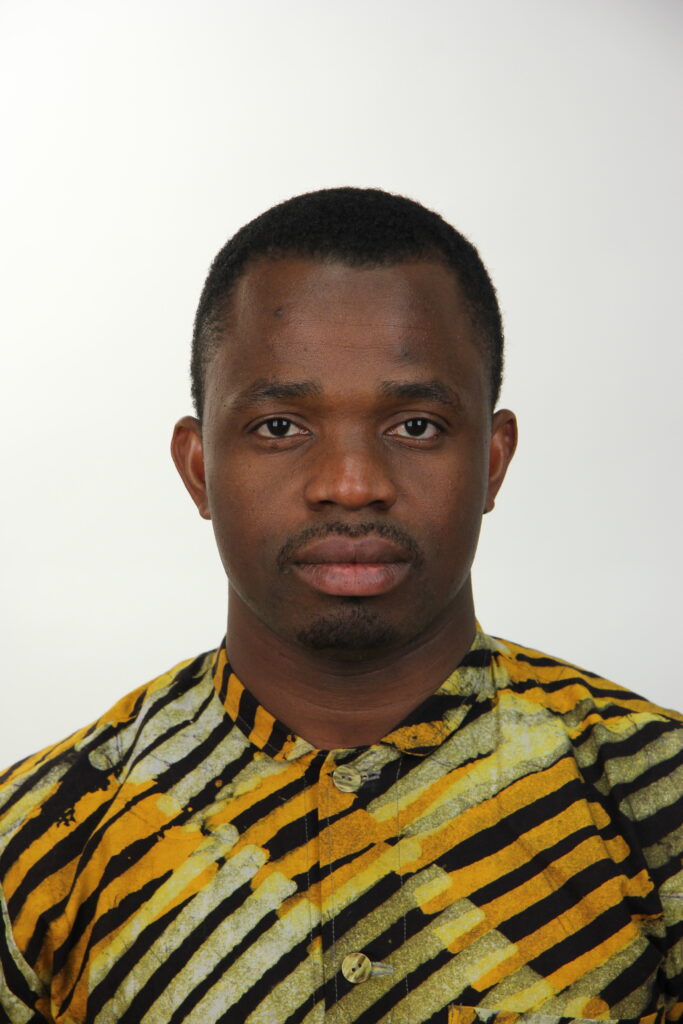
Ablam Benjamin Akoutou, MA Don Bosco Salesians Bonn
Project Manager for Sub saharan Africa at the procure of Don Bosco Salesians in Bonn
Ablam Benjamin Akoutou graduated in Political Science in 2012 with the topic: “European migration policy towards Africa in the field of tension between security and development policy claims and realities”, which he had published as a book in 2014. He studied German studies as well. Between 2013 and 2016, Benjamin Akoutou worked as coordinator of the WAI-ZEI research project between the West Africa Institute (WAI), in Praia, Republic of Cabo Verde and the Center for European Integration Research (ZEI) in Bonn, Germany. In addition to EU migration policy, he does research on Regional integraton in West Africa, good governance in the region, free movement of people and spirituality in the region.
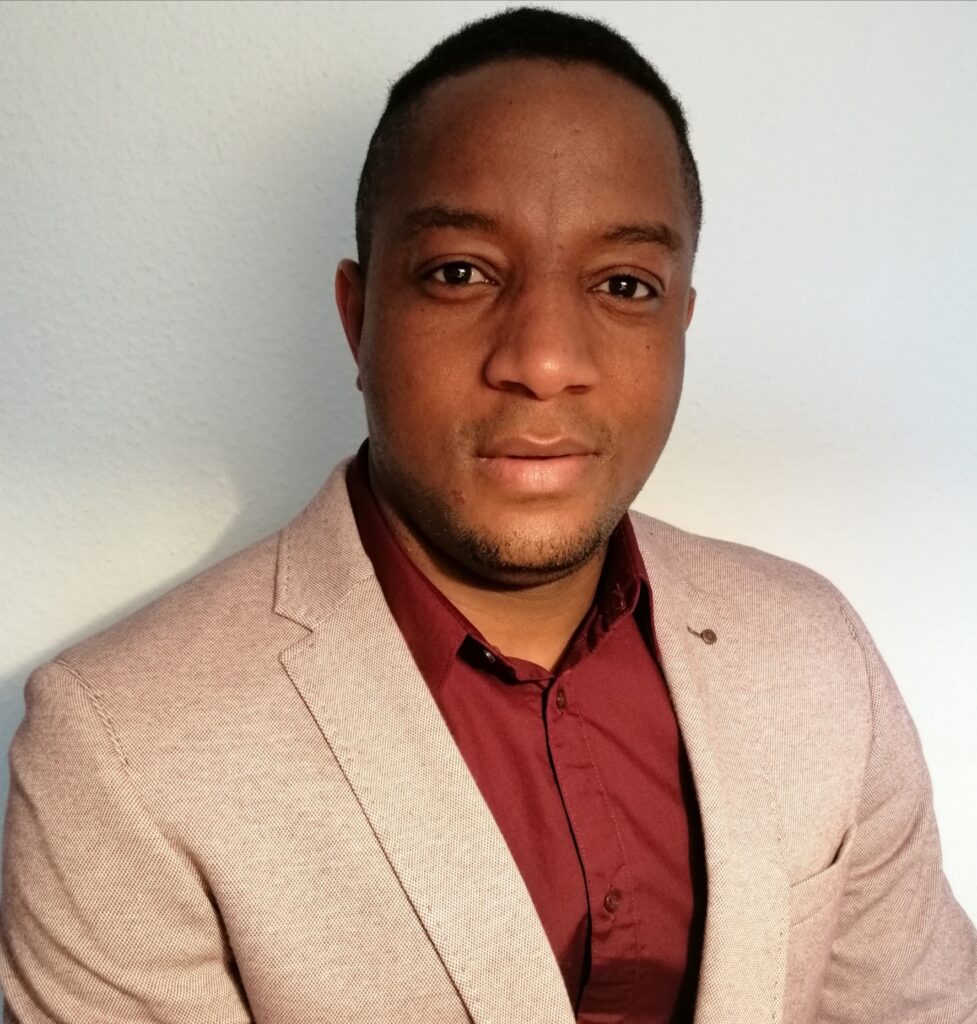
Prince Aihou Officer of the Benin Armed Forces – Helmut-Schmidt-University/University of the Federal Armed Forces, Hamburg
Master of International Relations
Prince Aihou studies Political Sciences and International Relations at the Helmut-Schmidt-University as an exchange officer. Furthermore he is interested in security and defense policy in West Africa and African military cooperation around the globe.
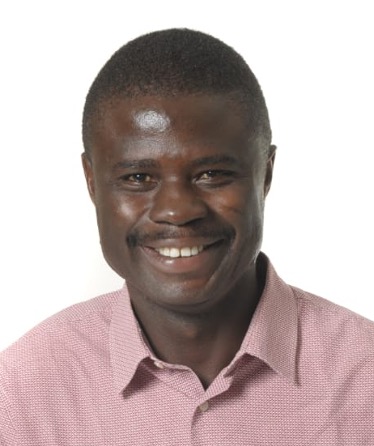
Michael Lieber Cobb; PhD Research Fellow, Arnold-Bergstraesser-Institut Freiburg (Germany)
As a researcher he has drawn on his experience of previously, serving as a lead mediator at a peace and reconciliation centre – Yendi Peace Centre – in the northern region of Ghana, my research focuses on establishing how the Chieftaincy institution that is presented as beneficial to social peace has instead constituted a source of several violent conflicts. Michael Lieber Cobb was part of the team that has been responsible for spearheading mediation and reconstruction efforts in traditional leadership crisis which has been simmering for many years in Northern Ghana since 2002. He holds an MA in Conflict, Peace and Security (Kofi Annan International Peacekeeping Training Center Accra); BA in Study of Religions with Philosophy (University of Ghana in Accra). Till date he holds a KAAD scholarship.
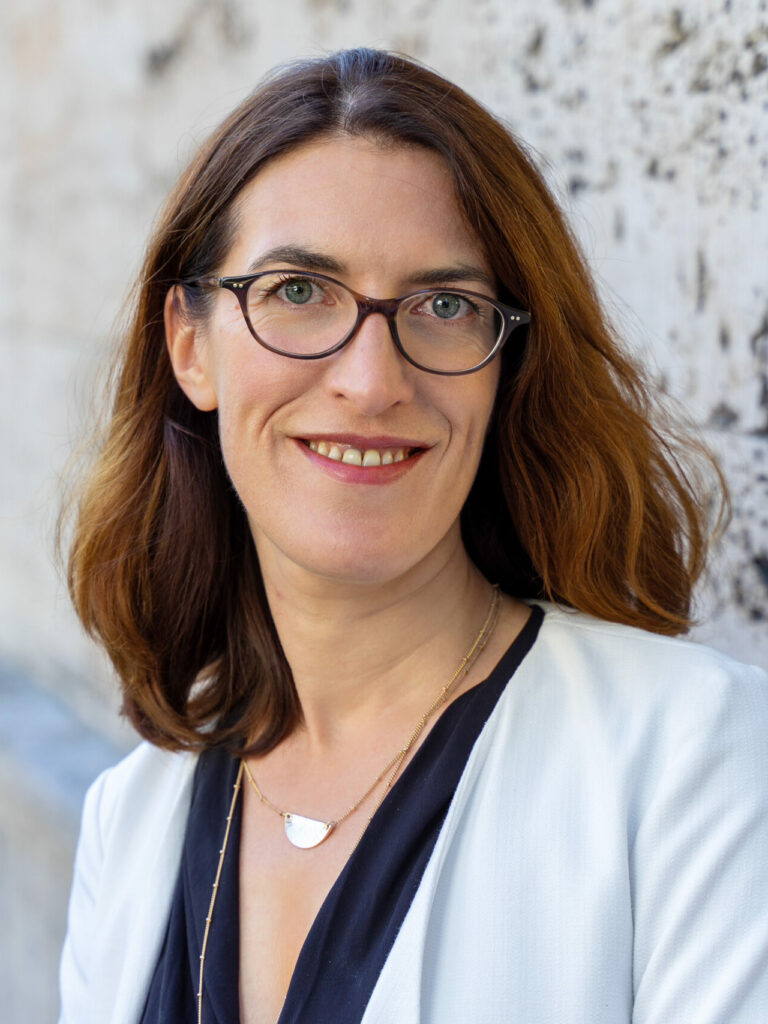
Dr. Claire Demesmay Franco-German Youth Office, Berlin
Head of Unit “Intercultural Education and Training” at the Franco-German Youth Office in Berlin.
Claire Demesmay is since September 2021 the Head of Unit “Intercultural Education and Training” at the Franco-German Youth Office in Berlin.
Until August 2021 Claire Demesmay was head of the “France/French-German Relations” program at the German Council on Foreign Relations (DGAP) in Berlin. Her research focuses on Franco-German cooperation in European policy, French and German foreign policy, and migration and integration policy issues. Claire Demesmay is an associate researcher at the Centre Marc Bloch in Berlin.
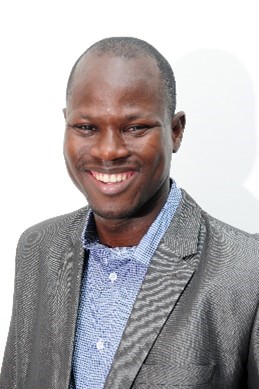
Rémy Arsène Dioussé Friedrich-Ebert-Foundation / Peace and Security Centre of Competence Sub-Saharan Africa (FES PSCC), Dakar
Programme Officer, focal point Sahel-Sahara region
Rémy Dioussé holds a Master in Defence, Peace and Security (Centre des Hautes Etudes de Défense et de Sécurité, Dakar) and in Human Rights and Peace (Human Rights and Peace Institute of Cheikh Anta Diop University Dakar). He has several years of experience in the field of Peace, Security and Human Rights with FES PSCC and the German Technical Cooperation in Senegal (GIZ/ProCas). He also coordinates programs and supervises studies and research papers with experts in the field of Peace and Security issues in the Sahel region.

Mohamed Abdellahi Elkhalil, MA Network of Assistance and Deradicalization in Mali (RADEM), Bamako
Project Manager at the Network of Assistance and Deradicalization in Mali (RADEM).
Abdellahi Elkhalil is specialized in social and security issues in the Sahel region. He holds a D.E.A. (Master of Advanced Studies) in Sociology at the Institute of High Studies from the University of Nouakchott (Mauritania). In 2012, he has created the Network of Assistance and Deradicalization in Mali (RADEM) and he works since 2018 as advisor for security, development strategy and the settlement of community conflicts in Mali at the Consortium World Arabic Company/RADEM. Mr. Elkhalil has also worked as coordinator and trainer of the project „Precoce Alerte for all/RADEM/young Leaders/religious leaders/Segou/Mopti.” 2018, Abdellahi Elkhalil was the Head and Executive Officer at the Malian office of the International Organization for the Development of Africa (I.O.D.A.). He has also led several consultation studies for national and international organizations.

Dr. Mouhamedoune Abdoulaye Fall University Gaston Berger, Saint-Louis
Social anthropologist / Professor and Dean, Department of Civilizations, Religions, Arts and Communications (CRAC)
Mouhamedoune Abdoulaye Fall deals with issues relating to development and modernity in Africa in the context of globalization. Consequently, he develops a critical thinking on the appropriation of social sciences in Africa. He subsequently released in 2011 “Saint-Louis du Sénégal : et si le développement n’était qu’une chimère?”, followed in 2020 by “Saint-Louis du Sénégal : patrimoine de l’humanité ou patrimoine de la colonisation?” Both books were published with L’Harmattan editions (Paris).
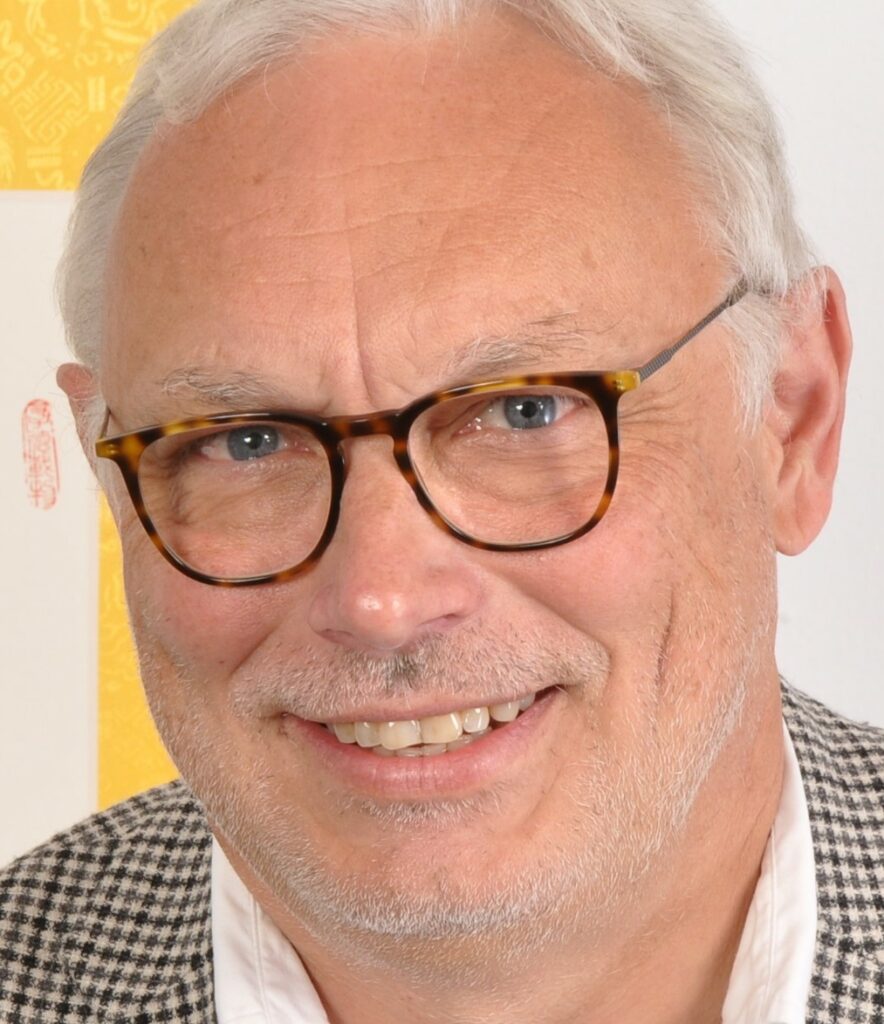
Prof. Dr. Sven Bernhard Gareis Westphalian Wilhelms – University of Münster
Institute for Political Science
Sven Bernhard Gareis works on China-Africa relations and its repercussions for Germany and the European Union. Besides political, economic and developmental cooperation between the People’s Republic and many African countries he has a special focus on the engagement of the Chinese People’s Liberation Army on the African continent.
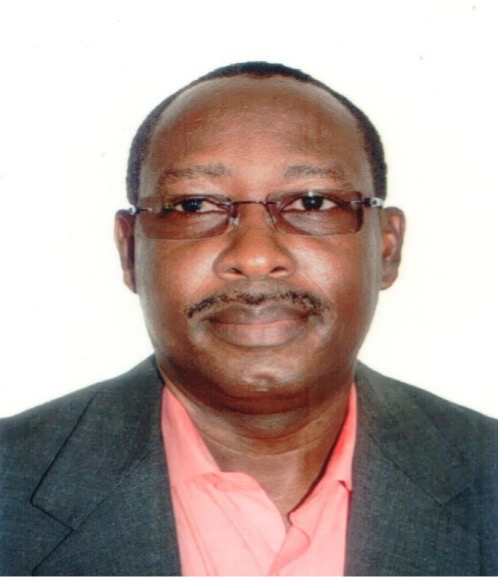
Prof. Dr. Kokou Folly Lolowou Hetcheli University of Lomé, Togo
Professor for Political Science and Sociology.
Prof. Kokou Folly Lolowou HETCHELI holds 2004 a Ph. D. in Political Sciences, Sociology and Pedagogy at the University of Münster in Germany. Currently, he is the 1st deputy dean of the Faculty of Social Sciences of the University of Lomé (Togo). Prof. Hetcheli is also the scientific head of the“Think Tank Social Dynamics and Regional Integration”(Laboratoire Dynamiques Sociales et Intégration Régionale, LaDySIR), the Head of the Panafrican Circle of Research on Security, Peace and Developement (CPR-SPD), and the scientific Head of master’s degree “Political Dynamics and Societies Mutations ” at the University of Lomé. Prof. HETCHELI has published widely on socio-political crises and regional integration in West Africa.
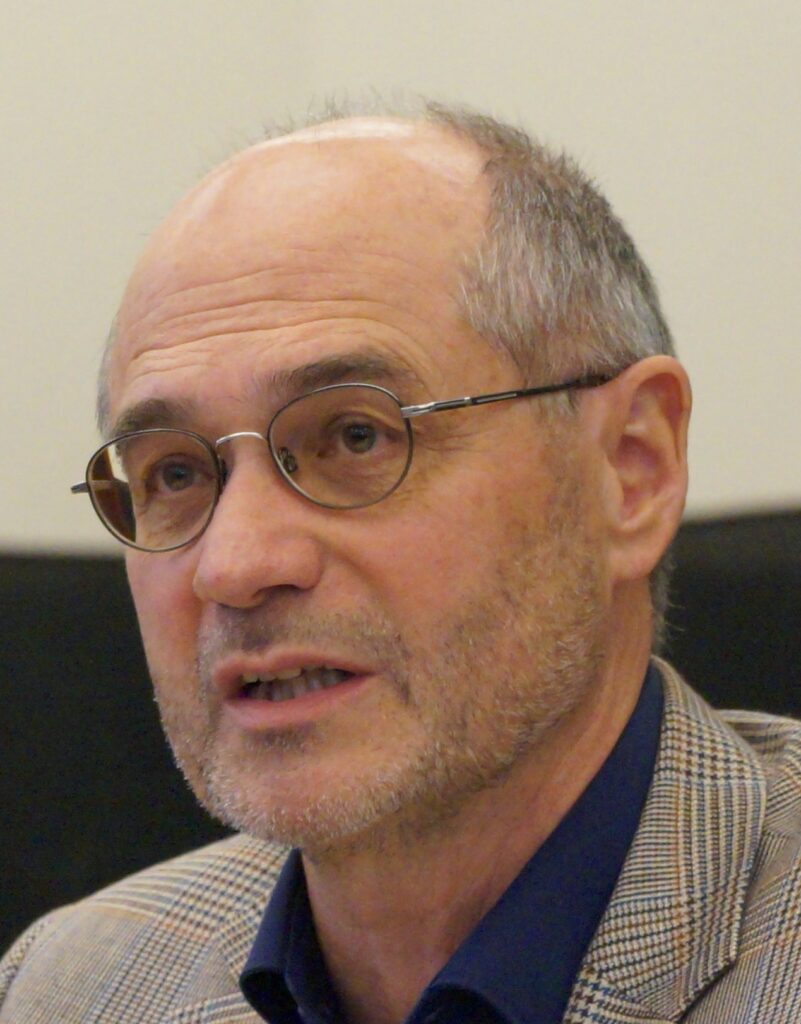
Prof. Dr. Heinz-Gerhard Justenhoven Institute for Theology and Peace, Hamburg
Director of the Institute for Theology and Peace in Hamburg and Associate Professor of Moral Theology at the Albert-Ludwigs-University Freiburg i.Br.
Heinz-Gerhard Justenhoven is a Catholic theologian with focus on political ethics and peace ethics. His research is focused at ethics of foreign and security policy, statebuilding in Afghanistan and Mali. Further research interest are the European Integration as peace project, moral questions of international law, theology and politics of reconciliation. Heinz-Gerhard Justenhoven is member of the steering committee of the worldwide Catholic Peacebuilding Network and the German Commission Justitia et Pax.
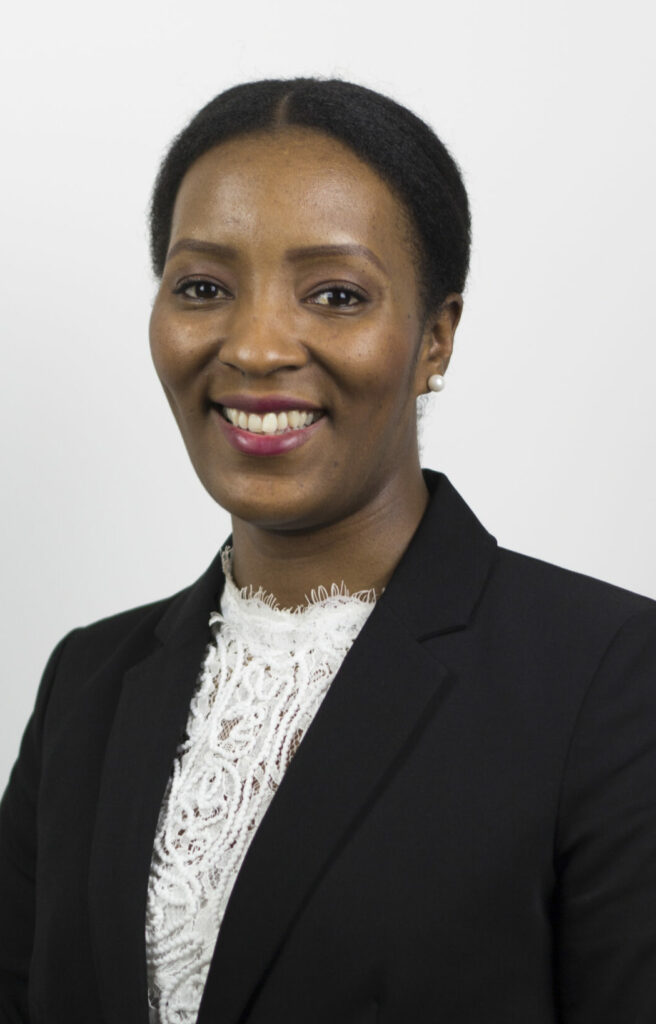
Elisabeth Kaneza, MA Kaneza Foundation for Dialogue and Empowerment e.V. Aachen/ University of Potsdam
Chairperson of the Kaneza Foundation for Dialogue and Empowerment e.V/ PhD candidate
Elisabeth Kaneza analysed the contribution of African regional organisations for the prevention and management of conflict in her master’s thesis. She is currently a doctorate candidate at the Faculty of Law of the University of Potsdam. Her research focus is on human rights and anti-discrimination law.
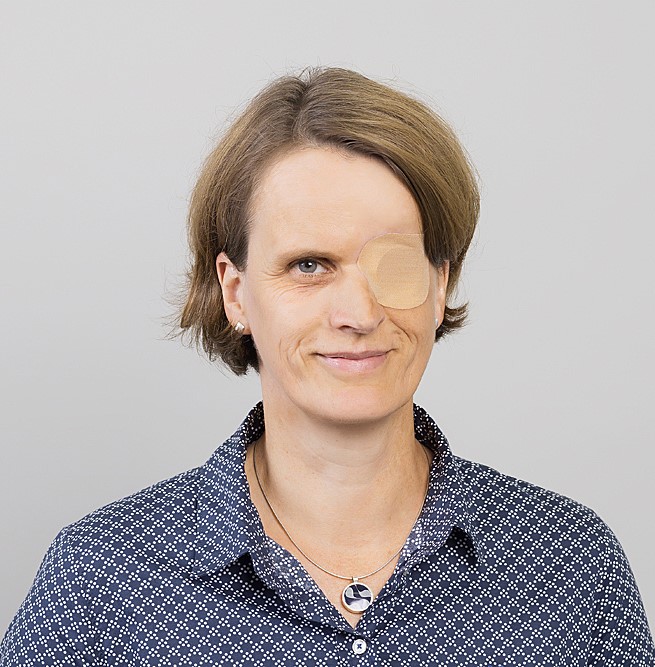
Maria Klatte Head of Africa/Middle East department, Misereor Aachen
Maria Klatte is head of the Africa/Middle East department at the Misereor aid organization. Her regional focus is on Western and Central Africa and Madagascar. In cooperation with the respective regional teams, she is responsible for project cooperation with national, regional and pan-African partner organizations and participates in networks on African policy issues (VENRO, Fokus Sahel, ÖNZ, Tournons la Page). Mrs. Klatte has worked for several years as a development worker (Agiamondo) advising Misereor partner organizations in Madagascar and managing Misereor’s dialogue and liaison office in Kenya.
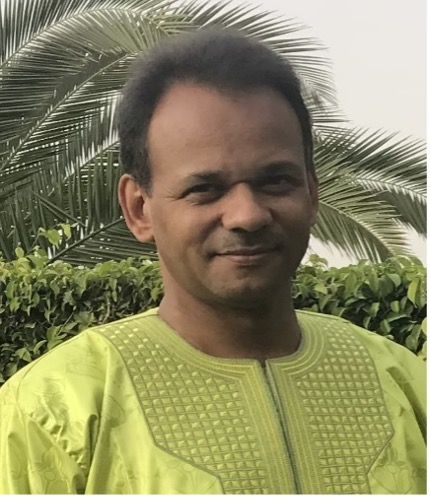
Marcel Maiga, Cultural manager, Berlin
Originally from Mali, Marcel Maïga works mainly in the cultural field by organising film festivals in Germany such as the Berlinale and DOK Leipzig. Since 2019 he is the Eastern European delegate of German Films, a company promoting German films worldwide.
In 2012/2013, after several years of experience in the field, Marcel Maïga participated in the organisation of the Malian presidential elections in the jurisdiction of the Malian embassy in Berlin as president of the Independent National Electoral Commission (CENI). As a member of the Council of Malians Abroad in Germany (CMEA) he is also involved in the Malian diaspora. In 2010 he started to work on the relations between the cities Chemnitz and Timbuktu and is the representative of the mayor for this twinning. Marcel Maïga is also a member of the steering committee of the Fokus Sahel network.
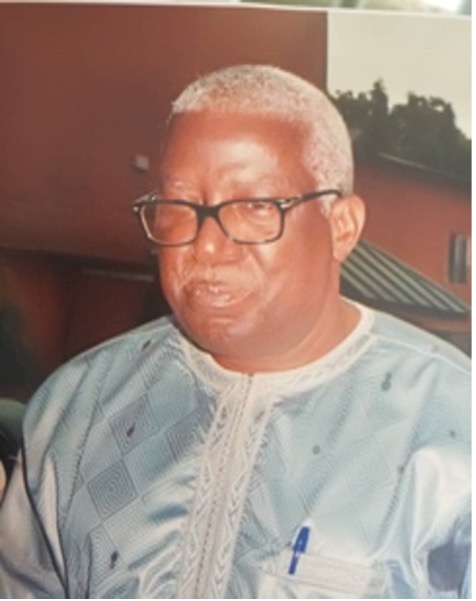
Prof. Dr. Oumar NDONGO Cheikh Anta Diop University, Dakar
Professor for of American Studies and Comparative Literature
Prof. Dr. Oumar NDONGO is professor of American Studies and Comparative Literature at Cheikh Anta Diop University, Dakar, Senegal. Currently he serves as academic director of the African Centre for Strategic Intelligence based in Dakar. He chairs the regional Board of WANEP (West African Network for Peacebuilding) based in Accra, Ghana. He is member of the College of West African Peacebuilders. He is also member of the Scientific Committee of the UNESCO Chair on Education in prisons based in Canada.
He served as General Secretary of the West African Civil Society Forum and worked closely with the Economic Community of West African States (ECOWAS) in Abuja, Federal Republic of Nigeria. He authored several books, book chapters, and articles on Peacebuilding, Gender issues, Public Diplomacy and ECOWAS and AU conflict prevention mechanisms. He supervised many doctoral research theses on the USA, African Security Governance, geopolitics and the rule of law.
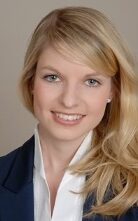
Sonja Nietz, MA Helmut Schmidt University/University of the Federal Armed Forces, Hamburg
Research fellow at the Chair of International Relations
Sonja Nietz is writing her thesis on: “The Military in young westafrican democracies. A comparison of the political-military relations in Nigeria, Burkina Faso and the Ivory Coast (2009-2019)“. She also does research on the following subjects: Security policy and Conflict Consultation in Westafrica; External actors in Africa and Africa in International Relations; Conflicts (domestic/ civil wars); Sahel zone, Civil-military relations; political institutions.

Christopher Otieno Omolo, MA Eberhard Karl University, Tübingen
PhD Candidate at the Institute of Political Sciences
Christopher Otieno Omolo (Kenya) is completing his PhD in Political Science at the Eberhard Karl Universität Tübingen, Germany. He currently researches on Regional Conflict Management and the Transformation of Regional Organizations in Africa focusing on the African Union (AU), Economic Community of West African States (ECOWAS) and the Intergovernmental Authority on Development (IGAD). He has previously taught at the Institute for Regional Integration and Development (IRID) at the Catholic University of Eastern Africa (CUEA), in Nairobi, Kenya. He also served with the Jesuit Refugee Service (JRS) at the Kakuma Refugee Camp, in Kenya. Christopher holds a Master of Public Policy (MPP) degree from the Willy Brandt School of Public Policy at the University of Erfurt, Germany, and a Bachelor of Arts (Honors) degree in Philosophy from the University of Zimbabwe. His research interests are African Regionalism, Comparative Regionalism, Regional Security, Conflict Transformation, and Humanitarian Governance.

Dr. Sœur Thérèse SAMAKE
Malian by origin, Dr. Thérèse Samake is religious (nun) of the Catholic Institute „Filles du Cœur Immaculé de Marie (FCIM)” in Mali. She holds a Ph.D. in Philosophy and is research fellow of CAMES (African and Magadascan Council for Higher Education). Currently, Dr. Thérèse Samake works as academic Head of the University Unit of Bamako (UUBa) of the Catholic University of West Africa (UCAO-UUBa). She is member of: Academic Women Network of Mali (since 2017), French Society of Philosophy (since 2016), African Group of Research on Intercultural Philosophy GARPI (since 2015) and Center for African Studies and Intercultural Researchs – CEAF&RI (since 2013). The research of Dr. Thérèse Samake focusses on the following issues: violence and society, environmental evolution and human capital, violent extremism and peace. Currently, Dr. Samake is doing research on „Violent extremism and Youth: which strategies of struggle for which peace“.
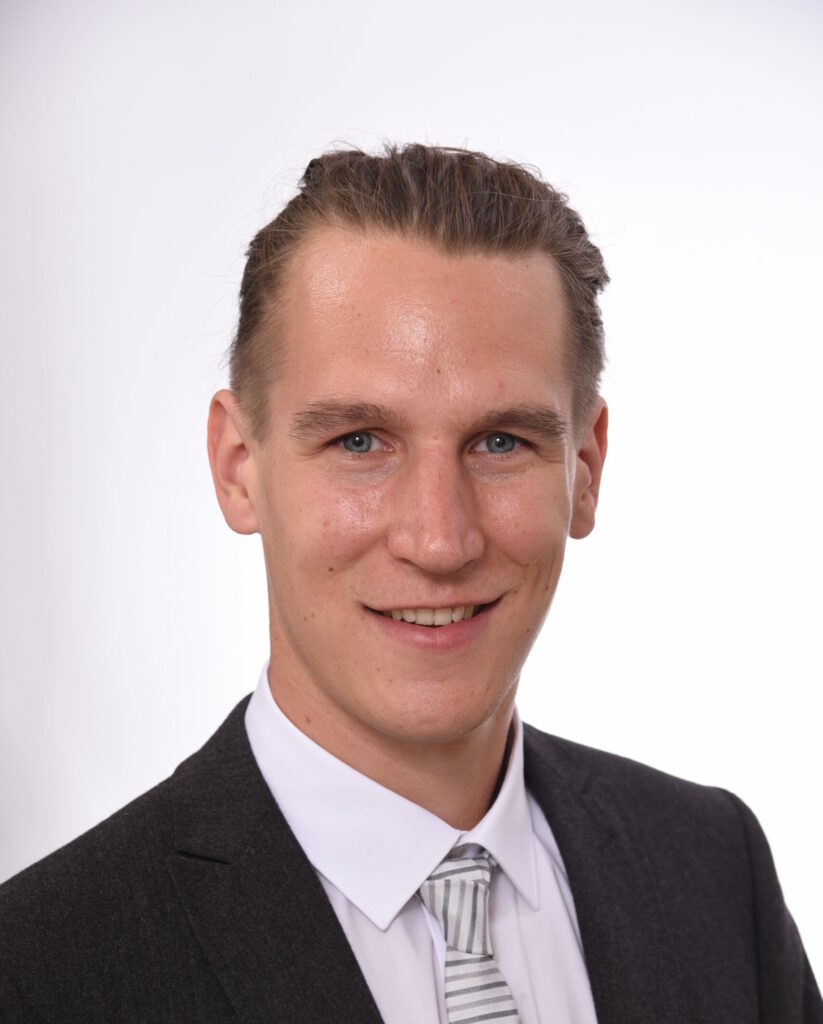
Jonas Schaaf, MSc Humboldt-University Berlin/Justus-Liebig-University, Gießen
PhD Candidate at the Department of Geography Giessen/ Postgraduate Trainee SLE Class of 2021
Jonas Schaaf is a human geographer by training and a doctoral researcher at Peace Research Institute Frankfurt (PRIF). He is part of the working group “African Intervention Politics” in the research department “Global Junctions”. His main research interests are conflict dynamics along with civil and military interventions in Mali and the Western Sahel as well as African and European peacebuilding approaches that address the intersection of security and development policies in contexts of fragile statehood.
Prior to undertaking a BMZ-funded postgraduate program at the Centre for Rural Development in 2021, he worked as a research associate at the Department of Geography at the University of Giessen from 2017-2020.
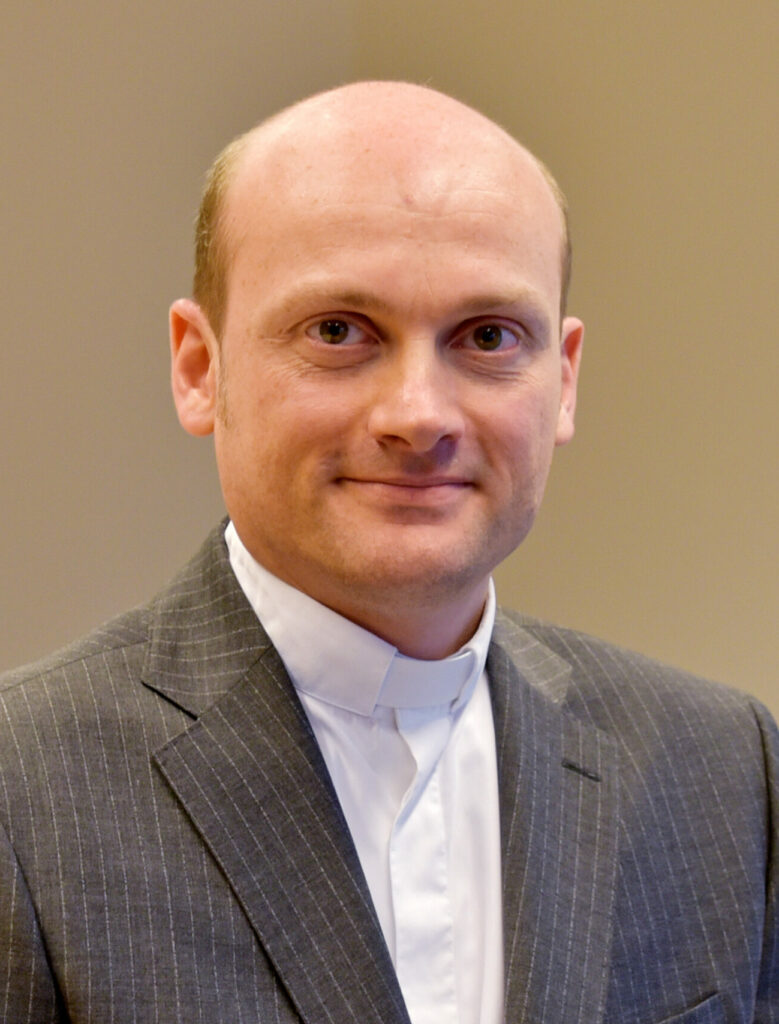
Dr. theol. Marco Schrage, MA Institute for Theology and Peace, Hamburg
Project manager at the Institute for Theology and Peace
Marco Schrage has one degree in Law and Italian studies as well as one in Philosophy and Theology and wrote his thesis on the ethics of Conflict and Peace, focussing on: “The Intervention in Libya. An evaluation of multilateral military interventions with humanitarian purposes from the perspective of catholic Peace ethics“. He also does reasearch on the fundamental questions on the ethics of Peace and Conflict from a theological-ethical perspective and the EU foreign security policy, shown on the example of Mali.

Anina Schuh, MA elfnullelf, Berlin
Public affairs consultant at elfnullelf
Anina Schuh has a M.A. in Politics and International Relations from the University of Aberdeen, Scotland. Additionally she completed a master in Current Democracies: Nationalism, Federalism and Multiculturalism from the Universitat Pompeu Fabra in Barcelona, Spain. Lastly she graduated from the Institut für Friedensforschung und Sicherheitspolitik in Hamburg, Germany with a master in Peace and Security Studies. She wrote her thesis on the topic “The Responsibility to Protect: Creating tensions between the Charter of the United Nations and regulations of the African Union.”
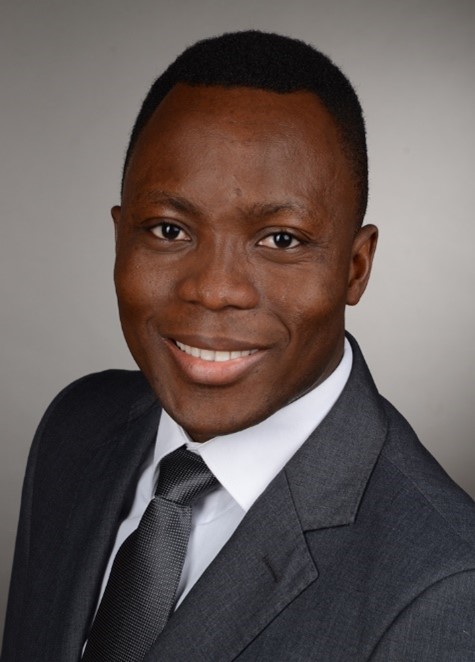
Paul Sedzro, MA Helmut Schmidt University/University of the Federal Armed Forces, Hamburg
PhD Candidate at the Chair of International Relations
Paul Sedzro is writing his thesis on: “ECOWAS as peace and security actor. The impact of nigerian domestic policy on the efficiency of ECOWAS in adressing conflicts and crisis in West Africa. A study of ECOWAS-peacekeeping missions in the Ivory Coast, Mali and Gambia (2002-2020)”. He also does research on the following subjects: security policy and conflict management in West Africa; external actors in Africa and Africa in International Relations, France‘s Africa Policy, Migration Policy, domestic and foreign Policy in West Africa, Democratization in francophone Africa.
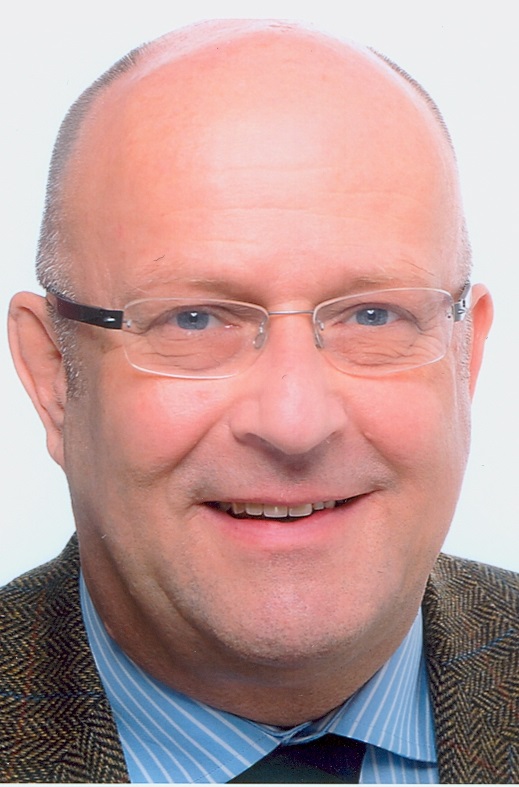
Prof. Dr. Michael Staack Helmut Schmidt University/University of the Federal Armed Forces, Hamburg
Professor for Political Science and International Relations
Michael Staack analyses Germany’s foreign, development and security policy towards West Africa. His particular interest lies on the cooperation and eventual tensions with France as the closest political partner. Furthermore he focuses on Regional Security Governance in Westafrica; also in comparison with other regions like Europe or East Asia. Michael Staack is a Senior Research Fellow at the West Africa Institute (WAI) in Praia (Cabo Verde).
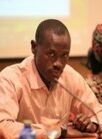
Alex I. Tendeng, MA Project Manager, Saint-Louis
Alex I. Tendeng spezializes in development in order to implement sustainable strategies and actions in accordance with the development policies initiated and encouraged by Senegal, in particular for women, children and the youth. The role and missions of Alex Tendeng include the participation in decision-making processes which implicate strategic choices and orientations. At the moment, Alex Tendeng contributes and participates in several projects in economy as well as social or cultural sectors. The current functions of Alex Tendeng reflect the diversity of his profile and expériences. He is a former Regional Director of Caritas.
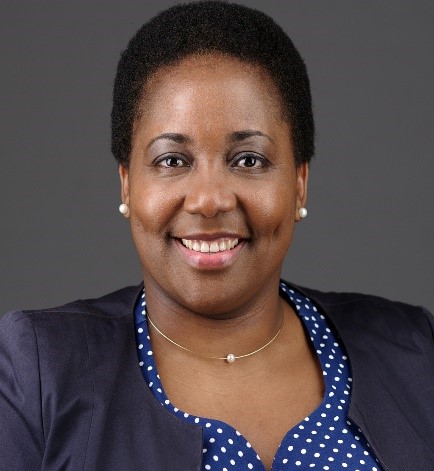
Germaine Tesch-Ntad, MA/MPS Foundation Grone-School, Hamburg
Project staff member at Grone Educational Center for Qualification and Integration Hamburg
Germaine Tesch-Ntad is particularly interested in the main topics of democracy and the rule of law in Africa, security and development in Africa, international cooperation with Africa, colonialism in Africa, ECOWAS and security policy in West Africa, the role of African elites in development and security policy in Africa. In her study (2021) “Empowerment of Women in Education and Labour Market Integration. A Study on German Development Cooperation in West Africa“, she examined the development policy measures of the Federal Ministry for Economic Cooperation and Development (BMZ). In addition she analysed the feasibility of implementing the BMZ guidelines Marshall Plan and Gender GAP II in the measures for the empowerment of women and girls in the areas of education and labour market integration in Mali and Senegal and formulated concrete recommendations for action on this topic. As deputy chairwoman of the association S.O.W.A.S e.V. (Support of West African Students), Germaine Tesch-Ntad works voluntarily for social justice and equal opportunities in education for children and young people in West Africa.
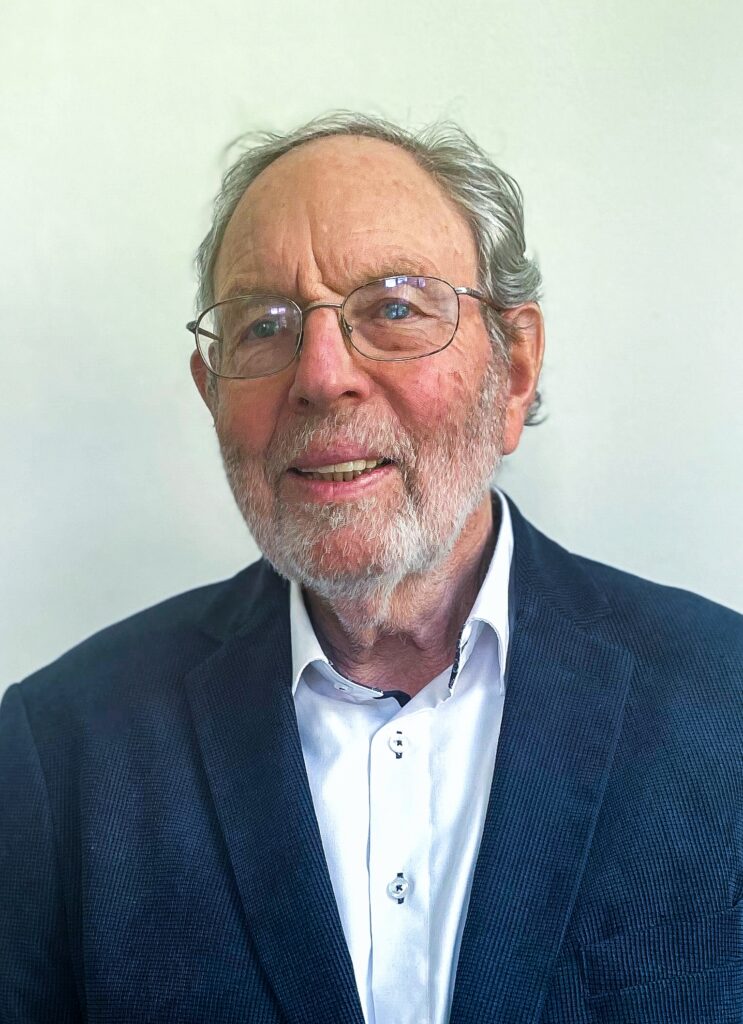
Prof. em. Dr. phil. Rainer Tetzlaff Africa College Hamburg
Professor for Political Science, in particular Theories and Empirical Studies of International Relations and Third World Countries / Head of the directorate of the Africa College Hamburg (AKHH)
Prof. Tetzlaff analyses political, economic and social developments of African states and societies since their independence from European colonial rule, mainly. This includes the analysis of the impact of development programs of the World Bank and the European Union on African societies. He is specially interested in Ghana, Nigeria and Mali: the transformation of Ghana from an authoritarian military rule to a consolidated multi-party democracy; the crisis-ridden development of the oil-state Nigeria, which seems to suffer from the ‘curse of resources’; Mali as a fragile land-locked country, which tries to escape in the face of jihadist aggressions the decay as a failed states by international military assistance of France and the United Nations.
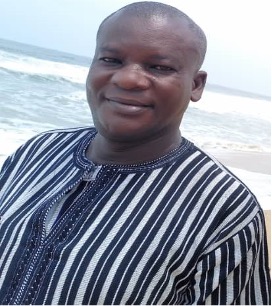
Dr. Omorou TOURE, Professor of Law at the University of Juridical and Political Sciences of Bamako, Mali
Professor of Law at the University of Juridical and Political Sciences of Bamako, Mali.
He holds a PhD on “Remedies under the WTO dispute settlement mechanism” from the University of Ouaga II, Burkina Faso, MA from the University of Pittsburgh School of Law, USA, and MA from the Ukrainian Institute of International Relations of the University Taras Shevchenko of Kiev; research fellow affiliated to the West Africa Institute, Praia/Cabo Verde, partner of the Center for European Integration Studies, University of Bonn,Member of the Euro-African Institute of Economic Law, Belgium, Coordinator of the OKP-SHL-RESCOM-104897 project, entitled “Climate change, security and rule of law in the Sahel: optimizing the contribution of universities to strengthen the resilience of communities” led by three universities in the Sahel (USJPB / Mali, UAM / Niger and UJKZ / Burkina Faso) and three institutions in the Netherlands (MSM, ECDPM and CINOP), funded by the Dutch Ministry of Foreign Affairs through NUFFIC.
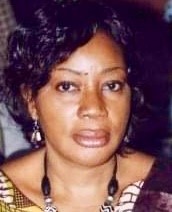
Prof. Dr. Djénéba Traoré West Africa Institute Praia (Cabo Verde)
General Director of the West Africa Institute (WAI)
Professor Traoré holds a Ph.D. degree from the Faculty of Social Sciences of the Humboldt University of Berlin. Previous to her present assignment, she served, inter alia, as a rector of the University of Literatures and Humanities of Bamako (ULSHB) (Mali). Being of Malian nationality, Prof. Traoré has repeatedly presented her analysis of the prevailing situation the last years in her country. She is particularly interested in the role France and Germany play in this crisis and the suitability of the employed means for its resolution. She is convinced that the fundamental problems should be debated frankly and that the question of Kidal represents one of the major challenges for Mali’s stability: indeed only a rebellious minority of its inhabitants claims independance while the majority of the malian people sees Mali as indivisible. This is why, according to Prof. Traoré, the consideration of two elements is absolutely necessary in order to definitely settle the terrorism problem in the Sahel region: the abrogation of the colonial pact with France and the revision of the 2015 Alger Agreement.
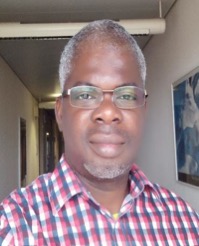
Dr. Darius Tuonianuo Mwingyine University of Business and Integrated Development Studies (UBIDS), Wa – Ghana
Lecturer, Department of Real Estate and Land
Dr. Mwingyine holds a PhD from the Center for Development Research (ZEF) and the Geography Institute, University of Bonn, Germany. His doctoral research was on Land Commodification and intergenerational land relations in North-western Ghana. Darius also holds an MPhil. in Land Management and BSc. in Land Economy from the Kwame Nkrumah University of Science and Technology, in Kumasi, Ghana. He teaches courses at the UBIDS, including Land Governance, Land Law, and Principles of Property Valuation. Darius’ research interests include: land markets/commodification and land relations; land governance and sustainable livelihoods; climate variability, rural livelihoods and development. Darius also has a special interest in University-Community relations.
Letzte Änderung: 14. November 2023